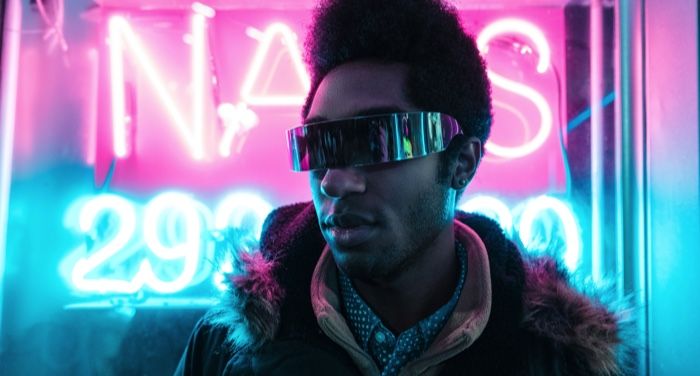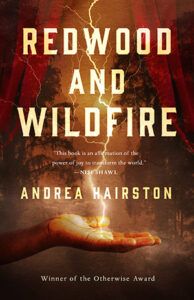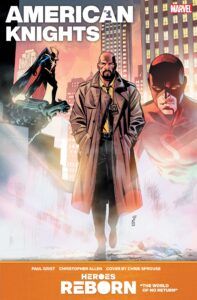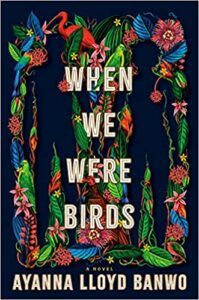
Afrofuturism: Its Origins, Present, and Future
If you google “What is Afrofuturism?” you’ll probably see the same combination of words together like Mark Dery, Black Panther, and “aesthetic.” In his essay “Black to the Future,” Mark Dery asks the question, Why aren’t more Black people writing science fiction? He asked this while acknowledging that he only only knew about a handful of Black sci-fi writers, such as Octavia E. Butler, Samuel R. Delany, and a few others. He then goes on to say:
African-Americans in a real sense, are the descendants of aliens abductees; that inhabit a sci-fi nightmare in which unseen but no less impassable force fields of intolerance frustrate their movements; official histories undo what has been undone; and technology is too often bought to bear on Black bodies (branding, forced sterilization, the Tuskgee experiment, and tasers come readily to mind).
He continued by laying out the case that science fiction should be swarming with Black writers because white supremacy (he did not use the words white supremacy, but it is what he described) makes for great horror and dystopian content. As someone who identifies as an Afrofuturist, I found that to be problematic at minimum and impetuous at its worst. Dery continues to be attributed for coining the term Afrofuturism, but the nuance is missing from the context the word is used in. At the time he wrote his essay, the concept of Afrofuturism, at least to him, was a mere happenstance of how Black people should create science fiction that’s comprehensible for white readers. Dery framed Afrofuturism as an opportunity for Black writers to turn their oppression into literary milestones for white consumption.
But when enslaved Black people braided and cornrowed hair, they were also creating visual guides for the enslaved to gain their freedom. That is applied Afrofuturism. When Zora Neale Hurston went on her journey to document Black folklore and hoodoo, she was operating under an Afrofuturistic lens, as her goal was to find and uplift Black spirituality.
Even as I write this, I can admit that when I’m asked to describe what afrofuturism is, my answer may vary depending on the day. I know that may sound peculiar, but it all boils down to an understanding that the concept of Afrofuturism — at the bare minimum — is a visual, written, and audio art form created by Black people throughout the Black African diaspora. Afrofuturism is constantly in motion as it continues to evolve in a literary sense as well as an aesthetic.
Jelani Wilson, author of the Space Wizards series and a contributor to Octavia’s Brood: Science Fiction Stories from Social Justice Movements, shares similar sentiments on what Afrofuturism means:
Afrofuturism to me means Black art that employs a span of speculative subgenres, but isn’t necessarily fantastical or futuristic, that centers a Black gaze and prioritizes a Black audience. I have been an Afrofuturist long before I heard the term and I was a nerdy high school kid writing science fiction stories long-hand in the early ’90s with Black characters for all the other Black sci-fi fans like me who’d been marginalized or erased from so many of the comics, movies, cartoons, etc. we were into.
When did Afrofuturism start?
Short answer: At our birth. With our ancestors. The Harlem Renaissance was an Afrofuturistic movement. The creation of jazz, hip-hop, punk and funk are all spectrums of how Afrofuturism uses sounds to reflect the connections between our ancestors and the future.
One of the best visual representations of Afrofuturism to me is Jacob Lawrence’s “The Migration of the Negro” series. Lawrence was only 23 years old when he created the 60-piece series. Even though he was born in Atlantic City, New Jersey, Lawrence had a natural understanding on what is called the Black Exodus.
“At the very beginning of my understanding of communication with words, I was very much aware of this movement which took place starting after World War I and continued on to the late ’30s,” Lawrence said about his Migration series.
Dr. Richard J. Powell, who now serves Professor of Art & Art History at Duke University, said: “Here we have Jacob Lawrence, born in the north and growing up on the streets of Harlem and at the same time, he has enough history built in to him already to reflect on those beginnings of his parents and his parents’ parents.”
Even though Jacob Lawrence is hardly ever mentioned in the context of Afrofuturism, his ability to understand the need to capture a significant moment in America history makes him an Afrofuturist. His ability to visually depict something he heard his family and friends talk about gives a clear example of what I mean by stating Afrofuturism is always in motion. It makes me think of the Black people who were first and second generations removed from slavery that envisioned a better life for themselves and their future by traveling north.

Lawrence illustrated cities like Chicago, Detroit, St. Louis, Philadelphia, and others that became “chocolate cities” as more and more Black people started creating new lives in what they deemed the promised land. Andrea Hairston’s Redwood and Wildfire explored this notion by creating Chicago as a land of opportunity that would save them from the swamps and despair of the south.
Black people writing fantasy and speculative fiction is nothing new. Black people are under no obligation to write sci-fi under a white framework. The purpose of engaging with Afrofuturism is to free yourself from the white gaze! Black liberation thrives in progress and forward-thinking concepts and ideologies. Every reader should make it their mission to decolonize their science fiction.
In Black Sci-Fi Short Stories, there’s over 100 years of science fiction stories including W.E.B. DuBois’s “The Comet.” In this short story, he imagined a world where a catastrophic comet hits New York City and a Black man and a rich white woman were the only survives. That was in 1920.
Every year, Carnegie Hall celebrates Afrofuturism throughout February and March with multidisciplinary programming that includes exhibits, performances, and literary talks. Tim Fielder, author of Infinitum: An Afrofuturist Tale, also showcased at Carnegie Hall. I recall the last time I moderated a panel with him, he proclaimed the Barack Obama was an Afrofuturist, too. He explained to me that Obama being able to envision himself as the President of the United States was him daring and doing the unthinkable. Fielder wasn’t exactly wrong in his declaration, either. While many Black people celebrated his historical win, white supremacy positioned his presidency as ushering in a bleak future for white America.
I asked Fielder, who has identified as an Afrofuturist for decades, where he saw the movement going:
“Afrofuturism as a practice has undeniably both matured and renewed itself within the mainstream lexicon. We are no longer in an exclusively youth-based culture. We are in what my brother (educator, filmmaker and artist Jim Fielder) says is ‘Continuous Content Culture’. Easy access to advanced technology and the changing demographics of creators, curators, and consumers suggests Afrofuturism will have a bright expansive future.”
Black Superheroes and Afrofuturism

A lot of people consider Black Panther a concept of what Afrofuturism is; however, the origins of Black Panther aren’t Afrofuturistic. Black Panther is not a good example of this genre because it was not created by Black creatives. However, there have been Black creators such as Ryan Coogler and Ta-Nehisi Coates who have given the superhero the pathway to be included in the conversation. Without Black writers and illustrators, Black Panther would be another one-dimensional superhero with a Black face.
Dery used Milestone Media as a prime example of Afrofuturism. He featured Hardware on the first page of his essay. There are many elements to the Milestone universe that are Afrofuturistic, but the character Icon I would argue is not. Icon is not a Black character — he’s an alien that was discovered by an enslaved woman who raised him. Despite him living through the Civil War, the reconstruction era to the present, he chose to be passive with white supremacy. In Icon: A Hero’s Welcome (Icon (1993-1997)), Dwayne McDuffie wrote in the editor’s note that Supreme Court Justice Clarence Thomas was a huge fan of the Milestone superhero. There’s a reason he liked this character so much: McDuffie made Icon a staunch Republican who leaned more into Benjamin Banneker’s philosophy as opposed to the leaders we celebrate for our civil rights.
Black superheroes, especially those not created by Black people, tend to be created to push a conservative agenda to readers. Most of them are cops, former cops, or have some sort of affiliation with the government. Misty Knight, Angela (Watchmen), Monica Rambeau, Nick Fury, Black Lightning, and Falcon are all prime examples of this notion. It was just last year that Luke Cage was rebooted as a cop. Black superheroes that have close proximity with police and other outlets that sanction state violence are not consistent with Afrofuturism theories. This is problematic, but consistent, as the message aligns with how white supremacy insists that Black people need to be constantly policed, even in fantasy storytelling.
Afrofuturism vs. Black Speculative Fiction
After reading Dery’s essay, I’m not surprised that some Black authors and creatives reject the label of Afrofuturism. Black American culture has been exploited as a cultural export that everyone can cash in on except Black people. Once upon a time, white America was disgusted by the idea of ebonics (which is another example of Afrofuturism). Now, African American Vernacular English (AAVE) is reduced to just “internet slang.” This type of anti-Blackness is seen on a global scale and it seeps into parts of the Black diaspora.
As a Black American, I cannot imagine what Africa is like because I’ve never been there! However, like most Black Americans, large amounts of my DNA can be traced back to Africa. For non-continental Africans, Africa can look and feel like nirvana. It’s a location of wonders and answers, and some writers in the diaspora take creative liberties at creating their fictional African oasis. To be surrounded by people who look like you is a beautiful privilege to have, but that doesn’t mean it’s perfect.

I can assume that for continental Africans, Afrofuturism seems western-focused. That is not intentional on our parts. Black American culture is one of the biggest exports out of America and we don’t control it. But at its foundation, Afrofuturism is inherently African. The Black diaspora — as a collective — have tried to retain as much African culture as possible via our ancestors, even down to our fictional narratives. Jacob Lawrence said it best: “I was far removed from the culture I knew, but yet, I was very close to it.” I know that my culture has similarities with people throughout the diaspora. Whether it’s food, music or storytelling, there’s a familiarity with other Black cultures I’ve discovered through reading. For example, When We Were Birds is a Caribbean mythical love story set in Trinidad by Ayanna Lloyd Banwo. While it doesn’t infuse a lot of technology, it brings to light the relationship the Black people have with death by using mysticism that is similar to what I’ve heard Black elders talk about.
Samuel R. Delany challenged Dery by explaining the importance of intersectionality in afrofuturism. Delany talked about his own intersections — being gay and Black — and how he hopes that the LGBTQ+ community can engage in sci-fi “openly without reprisals.” Even though there have been some positive changes since 1994, there is still much work to do. I asked author of Still Breaking Normal: A Fat, Black, Femme, Geek Navigating an Anti-Black World and cosplayer Talynn Kel if she feels seen in the Afrofuturism movement as a fat geek:
“It always amazes me that whenever people imagine the future, there are no fat people. This whole idea that people who are fat are depicted as some burden on society that no one can wait to eliminate in their versions of the future. They can imagine space travel, all kinds of life, but not fat people. Like we’re a disease that needs to be eradicated and some technological creation will make it so. It is sad to me that our imaginations are so corrupted by the anti-Blackness of fatphobia that its ugly legacy is visible in our Afrofuturist works.”
There’s room in publishing and the literary world for Afrofuturism, Astro-Blackness, and any other genre Black people on this planet want to create. Between Janelle Monáe’s The Memory Librarian: And Other Stories of Dirty Computer and Black From the Future: A Collection of Black Speculative Writing, it’s already in us. We were born to exist in the future; everyone else just has to catch up.











